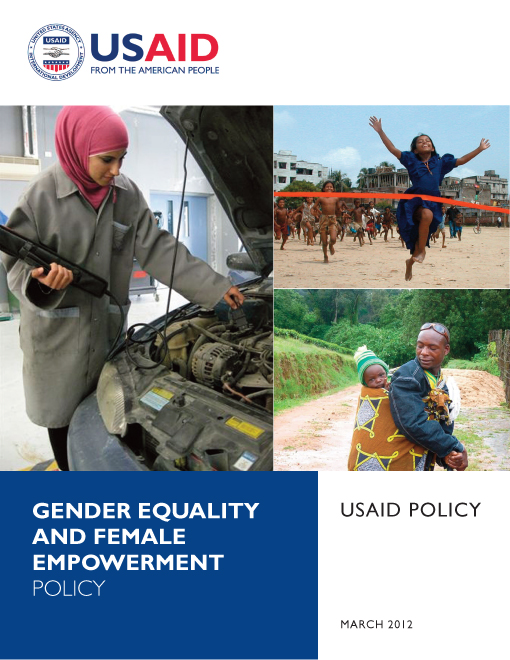For Immediate Release
WASHINGTON, DC - Today, during a White House event, Dr. Rajiv Shah, Administrator for the United States Agency for International Development (USAID), launched the Agency's new Policy on Gender Equality and Female Empowerment.
Gender Equality and Female Empowerment Policy ![]() (pdf - 3 MB)
(pdf - 3 MB)
Citing its importance, Dr. Shah stated, "We know that long-term, sustainable development will only be possible when women and men enjoy equal opportunity to rise to their potential. But today, women and girls continue to face disadvantages in every sector in which we work, and in other cases, boys are falling behind. With this policy, we can ensure our values and commitments are reflected in durable, meaningful results for all."
USAID Deputy Administrator, Ambassador Donald Steinberg, Gayle Smith, Special Assistant to the President and Senior Director for Development, and other senior White House officials participated in the launch. The event included special remarks by Geeta Rao Gupta, Deputy Executive Director for UNICEF; Mohamed El-Erian, CEO of PIMCO; and Julia Duncan Cassell, Liberian Minister for Women's Affairs.
This policy comes at a critical time as global efforts to reduce gender gaps have met only partial success. Across every development priority worldwide-from education to economic inclusion-gender inequality remains a significant challenge. For example, according to the United Nations Food and Agriculture Association, if women had equal access to the same productive resources as men, they could increase yields on their farms by 20 to 30 percent…which could reduce the number of hungry people in the world by up to 150 million people . Moreover, women are important change agents in their societies and their role as partners - not just beneficiaries of - development assistance is vital to long-run success.
The goal of the policy is to improve the lives of citizens around the world by advancing equality between females and males, and empowering women and girls to participate fully in and benefit from the development of their societies. Accordingly, USAID investments focus to:
- Reduce gender disparities in access to, control over and benefit from resources, wealth, opportunities and services - economic, social, political, and cultural;
- Reduce gender-based violence and mitigate its harmful effects on individuals; and
- Increase capability of women and girls to realize their rights, determine their life outcomes, and influence decision-making in households, communities, and societies.
The policy is part of USAID's broader reform agenda which includes rebuilding the Agency's policy capacity and establishing the Bureau for Policy, Planning and Learning to make strategic policy choices that are informed by cutting-edge evidence and analysis.
For more information: http://www.usaid.gov/what-we-do/gender-equality-and-womens-empowerment
1. UN Food and Agriculture Association (FAO) estimate, 2011.








Comment
Make a general inquiry or suggest an improvement.